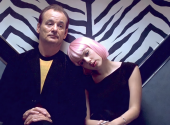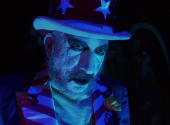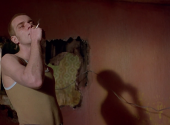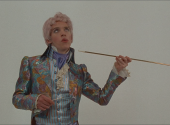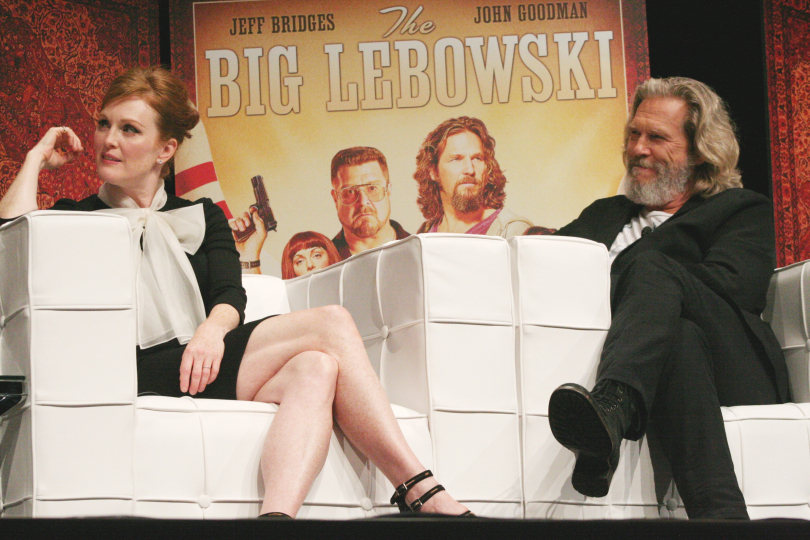
Soundtracks of Our Lives #1: The Big Lebowski, The Birth of The Dude
Soundtracks significantly shape our lives by providing a background score to our experiences and influencing our emotions and memories. For instance, a powerful soundtrack in a movie can evoke excitement, fear or sadness, heightening the viewers' experience and leaving a lasting impact on the audience. And of course, soundtracks act as the backbone for films, helping them to become cult classics. So how could we not start with one of the most cult films ever? Today, we're talking about the iconic The Big Lebowski.
If we had to think about which movie could best represent the social and human feelings of the late 1990s, there is no other film more representative of the decadence and lack of ideals of that time than the Coen brothers' masterpiece, The Big Lebowski. The Coen brothers were already known to theatre audiences for their previous hit film, Fargo, released in 1996 and produced by Gramercy Pictures.
With the same production label, Joel and Ethan Coen prepared for the production and release of their most important work in 1998. And important of course also for its soundtrack. The development of the soundtrack was a meticulously curated process; Jeff Bridges, who portrayed the titular character, Jeffrey "The Dude" Lebowski, had a strong influence on the musical selection, contributing his musical sensibilities to the project.
In addition, the Coen brothers collaborated closely with music supervisor T-Bone Burnett, an American guitarist and record producer who used to play the guitar in Bob Dylan's band in the '70s and who has won several awards for his movie scores (among many, O Brother, Where Art Thou?, Cold Mountain, Crazy Heart and Walk the Line).
The original movie score was composed by Carter Burwell, who also scored other movies by them. However, a large part of the music in the film included iconic songs, which helped solidify the film's cult status and resonate with audiences long after its release. To fit the mood and spirit, clever choices were made to match the music with the different personalities and scenes throughout the film.
Firstly, the protagonist, The Dude, an apathetic and lax personality whose life goal is to do sweet nothing, but who is catapulted into a myriad of misadventures, is a Creedence Clearwater Revival fan and dislikes the Eagles (as we will see later on). The film opens with the narration of The Stranger, a background character who appears later in the movie, played by the legendary Sam Elliott.
We see a tumbleweed bouncing across the desert followed by the camera, accompanied appropriately by the song "Tumblin' Tumbleweeds" by the Sons of Pioneers, chosen by the brothers as early as when they wrote the screenplay; there could not have been a more appropriate song, country and western, but also ironic.
Immediately following the opening credits comes Bob Dylan's song "The Man In Me", which is very descriptive of the main character. The laid-back and melodic tune perfectly captures the essence of The Dude, adding a sense of coolness and nonchalance to his persona. This song sets the tone for the rest of the film, establishing The Dude as a central figure in the narrative and becoming the movie's unofficial theme song.
The song also serves as a transition for narrating the one constant activity throughout the film: bowling. In the bowling hall, different feelings meet and collide, which are accurately represented by the musical composition. The shameless and sexually perverse character of Jesus Quintana (played fantastically by John Turturro), a great bowler and a pervert, is introduced with The Eagles' "Hotel California", but in a cover by The Gypsy Kings.
The song creates a sense of unease and tension that heightens the drama of the whole film. Interestingly, another Eagles song appears towards the end of the movie – in a theatrical scene involving The Dude getting drugged and thrown in a cab, the radio plays "Peaceful Easy Feeling". Bridges' reaction has become iconic, when he gets kicked out of the cab for wanting to change the radio station, using the excuse: "I hate the fucking Eagles, man!"
Creedence Clearwater Revival, on the other hand, is the "good" band and the two songs included in the film were used in positive scenes of redemption and hope: "Run Through the Jungle" plays in the Dude's car as he and his colleague Walter, played masterfully by a majestic John Goodman, try to get back ransom money; the other, "Lookin' Out My Back Door", is running while Bridges manages to recover his stolen car.
The film became a cult because of the presence of a psychedelic element, which made the character of The Dude almost a mystical figure, and after the film's release, a following developed such that a proper religion, Dudeism, was born. There is a scene that became iconic, where The Dude is rocking at home in his robe and sipping his favourite drink, the White Russian.
In the background plays the beautiful and melancholy "Her Eyes Are A Blue Million Miles", a song by Captain Beefheart And His Magic Band, which is also part of the most gloomy period in Captain Beefheart's career. However, the real psychedelic moment arrives in a scene in which Bridges is drugged in the house of porn producer Jacki Treehorn and experiences a bad trip.
"Just Dropped In (To See What Condition My Condition Was In)" by Kenny Rogers follows right away and The Coens' choice was perfect. A piece that is a little different from Rogers' usual sound but one that hits the mark and fits the hallucinating scene perfectly. The key component that serves as the backdrop for the entire scene is irony, which flows into grotesqueness.
There are seemingly dramatic scenes that the accompanying music makes seem ridiculous, such as when "Lacrimosa" plays in a revealing climactic scene (which I won't spoil). Or when – which in my opinion is the funniest scene in the film – Walter, in an act of extreme fury, destroys a sports car that he thought belonged to a certain Larry, but the real owner arrives and destroys the Dude's car.
The directors' choice for this sequence was "Oye Como Va" by Santana. The joyful rhythm and festive melody of the piece clashes ironically with the exaggerated violence of the scene. Another funny sequence involves the presence of three pseudo-criminals, the Nihilists, who make their entrance with "Technopop" by Carter Burwell. One of them, Uli (played by Flea from the Red Hot Chili Peppers), is part of the group Autobahn: a clear ironic reference to the German band Kraftwerk.
The film ends with the tune of "Dead Flowers", a Rolling Stones song covered by Townes Van Zandt. It's a somewhat nostalgic and sad piece that starts right after a funeral scene and represents the most appropriate musical finale – a little bittersweet, but leaving a smile on your face. The Big Lebowski soundtrack is a masterclass in film scoring, showcasing the power of music to elevate and enhance storytelling.
The Coen brothers selected a soundtrack that perfectly complemented the quirky and comedic nature of the film. Not only that, but the soundtrack stands as a testament to the importance of music in film, showcasing its ability to evoke powerful emotions and connections with the audience. A similar attention to musical choices and care for detail was adopted by Stephen Frears for his unforgettable High Fidelity, which we will talk about in our next episode.
How much do musical choices influence the success of a film and its outcome? What kind of approach should the director adopt in composing scenes in combination with music? How much have the Coen brothers influenced today's cinema? And how has Dudeism developed in our days?
Leave your opinion in the comments below!
If you have found an error or typo in the article, please let us know by e-mail info@insounder.org.


